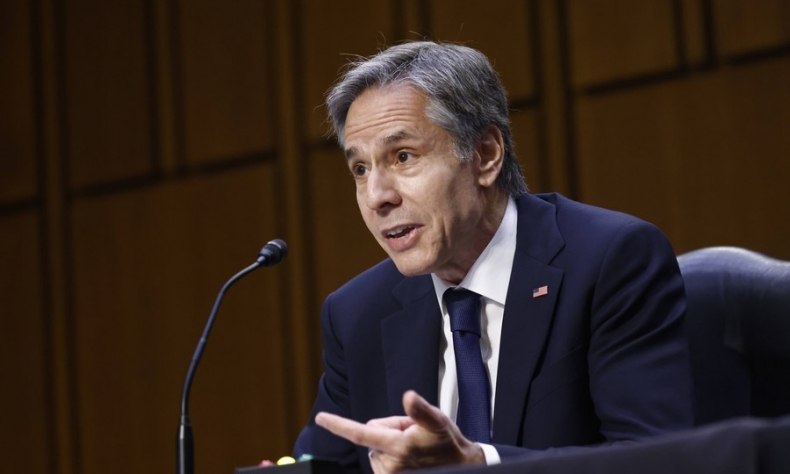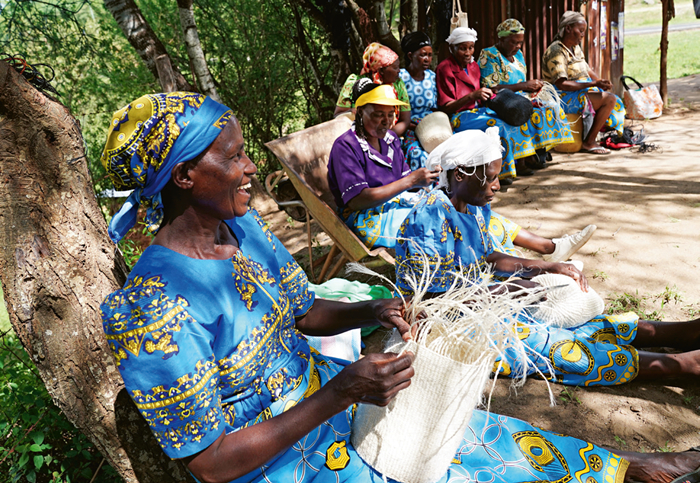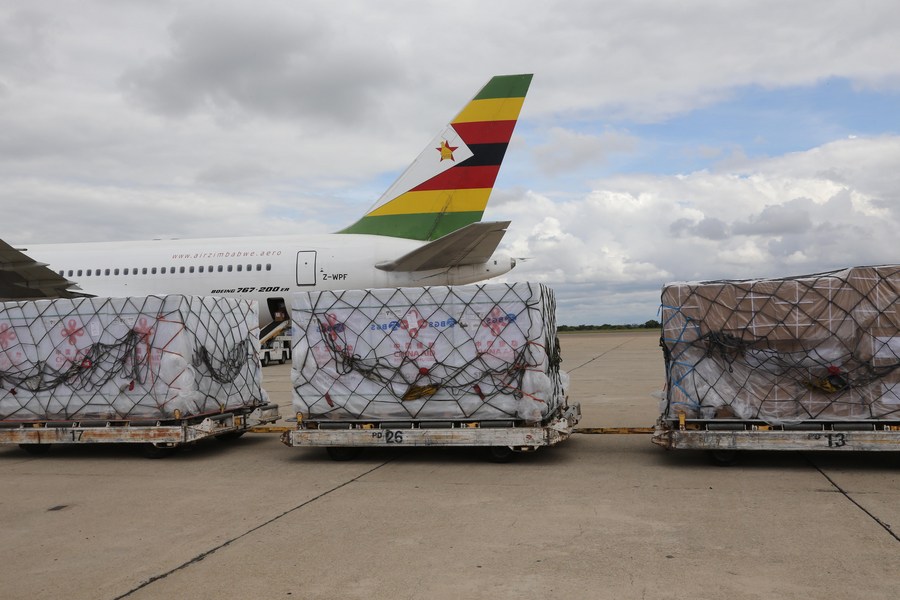U.S. Secretary of State Antony Blinken Blind to China’s Positive Influence in Africa

African leaders no longer have any appetite for lectures on democratic and human rights ideals that the U.S. itself has consistently failed to live by.
The U.S. Secretary of State Antony Blinken unveiled the so-called U.S. Strategy toward Sub-Saharan Africa while giving a lecture in Pretoria on August 8.
He claimed that the strategy seeks to enhance U.S.-Africa relations through creating open societies, promoting democracy, advancing economic cooperation and fighting climate change.
Blinken highlighted Africa’s strategic importance in terms of its youthful population, its control of critical minerals and strategic maritime zones, and its large voting bloc in international organizations such as the United Nations and the World Trade Organization, among other things. He claimed that these attributes would make Africa a priority in U.S. foreign policy.
However, it is disappointing that the strategy was presented in ambiguous language and shies away from making concrete commitments. It is a thoroughly unremarkable strategy that came across as the latest in a long list of paternalistic lectures the U.S. and the broader West have given Africa on how to run its affairs.
It seems Blinken has not read the African mood very well.
African leaders no longer have any appetite for lectures on democratic and human rights ideals that the U.S. itself has consistently failed to live by. His presumption of a democratic deficit in Africa is informed by the dubious metrics produced by Western think tanks. Relying on Western epistemic communities to understand and make conclusions about Africa is a disregard of Africa’s agency.
The U.S. still holds its governance systems as the gold standard to which all countries in the world should aspire.

Further, one of the most disappointing but expected aspects of the U.S. strategy toward Africa is its treatment of the continent as a pawn in the U.S. perceived competition with China and Russia.
It gave the impression that Africa’s value to the U.S. is largely derived rather than inherent. Blinken mentioned China’s relations with Africa in three separate instances, all in a negative light.
He claimed that the “People’s Republic of China (PRC), by contrast, sees the region (Africa) as an important arena to challenge the rules-based international order, advance its own narrow commercial and geopolitical interests, undermine transparency and openness, and weaken U.S. relations with African peoples and governments.”
He committed to working toward what he called “countering harmful activities by the PRC, Russia and other foreign actors.” He further said that “the (U.S.) Department of Defense will engage with African partners to expose and highlight the risks of negative PRC and Russian activities in Africa.”
Blinken also touted the Partnership for Global Infrastructure Investment, which is a U.S.-backed global infrastructure program widely perceived to be an attempt to rival China’s Belt and Road Initiative, to which 48 African states are now signatories. The U.S. has been one of the loudest critics of the Belt and Road Initiative, claiming that it is being used by China to undermine the sovereignty of developing countries while promoting its national interests.
These claims are not substantiated and wouldn’t stand a simple fact-check. More than anything, they are simply a political smear campaign against China.
China and Africa have forged a strong partnership that is rooted in historical solidarity and the two sides have treated each other as equals. China has been an important part of Africa’s economic rebound in the 21st century in terms of trade, investments, development finance and social development.
When it comes to thorny issues of peace and security in Africa and combating the COVID-19 pandemic, China has walked the talk. China is one of the biggest contributors of troops to peacekeeping missions in Africa, with over 1,400 troops. This is more than the combined contributions of the other four permanent members of the UN Security Council. Despite Blinken’s professed commitment to peace and security in Africa, the U.S. has contributed only 29 personnel to the UN peacekeeping missions.

As the COVID-19 pandemic raged across the world, China was at the forefront of helping Africa fight the pandemic through material and financial contributions. Unlike the U.S. vaccine nationalism, Chinese President Xi Jinping declared COVID-19 vaccines a global public good and ensured that they were made available to Africa and other developing countries.
China’s proposals, such as the Global Development Initiative and the Global Security Initiative are consistent with Africa’s interests, especially in terms of sustainable development, and do not impose a way of thinking on other countries. Moreover, in its cooperation with Africa, China has consistently insisted in the principles of respect for sovereignty and non-interference in the internal affairs of African states.
Such principles are a display of confidence in and acknowledgement of African countries’ ability to choose the right course of development for their nations. African leaders have gravitated toward China because the China-Africa relationship has yielded tangible benefits for the continent that cannot be washed away by anti-China rhetoric.
The anti-China rhetoric has consumed U.S. foreign policy for a long time, and has culminated in the Congressional approval of the China Competition Bill, which essentially seeks to push back against China’s increasingly prominent role in global affairs, including in Africa.
Such moves betray the sense that the U.S. is more concerned about undermining China’s growing influence in Africa rather than advancing Africa’s interests. In the eyes of the U.S. leaders, Africa is little more than a playground for geopolitical competition. Africa is encouraged to choose between the U.S. and China.
It is clear that Blinken has forgotten nothing and learnt nothing from the past.
African leaders are no longer interested in the Cold War politics of having to choose between global powers before being left hanging when there is a shift in the relations between those major powers. Africa has learnt to treat each partnership with an external power on its own merits and according to the continent’s interests.
The U.S. cannot build a strong partnership with Africa by mobilizing the anti-China sentiment. It would be better for everyone if the U.S. complements what China is already doing in Africa.
The author is the Director of the Center for Africa-China Studies at the University of Johannesburg.
 Facebook
Facebook
 Twitter
Twitter
 Linkedin
Linkedin
 Google +
Google +










